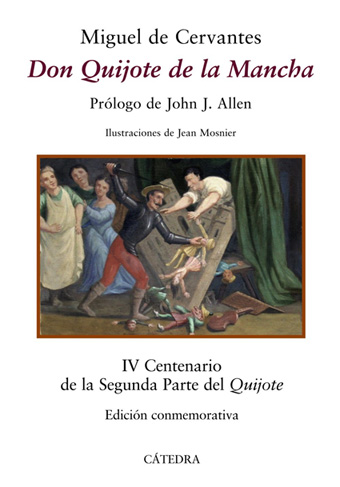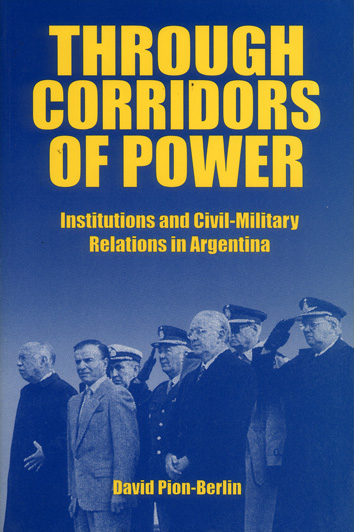Through Corridors of Power - Institutions and Civil-Military Relations in Argentina ∥ Pion-Berlin, David
¥5,060
税込
商品コード: 107827
商品コード(SBC): 107827
---------------------------------------
ISBN13: 9780271017068
---------------------------------------
サイズ: 15 x 23 x 1.5 cm
---------------------------------------
頁 数: xv+243 pgs.
---------------------------------------
装 丁: paper cover
---------------------------------------
出版社: Penn State University Press
---------------------------------------
発行年: 1997
---------------------------------------
発行地: University Park
---------------------------------------
双書名:
PDFリンク: ※ 詳しくはこちら (PDF追加情報)
---------------------------------------
ISBN13: 9780271017068
---------------------------------------
サイズ: 15 x 23 x 1.5 cm
---------------------------------------
頁 数: xv+243 pgs.
---------------------------------------
装 丁: paper cover
---------------------------------------
出版社: Penn State University Press
---------------------------------------
発行年: 1997
---------------------------------------
発行地: University Park
---------------------------------------
双書名:
PDFリンク: ※ 詳しくはこちら (PDF追加情報)
Description:
Military meddling in political affairs has long been common in Latin America, and the recent rebirth of democracy in many countries only heightens concern that military leaders will refuse to submit to civilian authority. One hallmark of progress is the willingness of the armed forces to work through rather than around democratic institutions in Argentina, a country with a long history of militarism.
This book examines the influence that institutions have had over the implementation of policy in Argentina between 1983 and 1995, revealing that policies can succeed despite military resistance. To explain the workings of the new Argentine politics, David Picon-Berlin draws both on archival sources and on interviews with some one hundred civilian and military figures – from presidential advisers and members of Congress to senior officers from all branches of the military – to show how programs are debated by political actors and how authority is dispersed across numerous institutions.
Pion-Berlin explains how Argentine democratic institutions mediate the sometimes differing interests of civilian and military authorities in order to determine whether or not soldiers succeed at defeating policies they oppose. Eschewing conventional approaches that view the military as a domineering power, he shows that the government can either enable or constrain the military’s authoritiy and that the success or failure of civilian leaders in imposing their policy on the military is a function of the centralization of policymaking and the insulation of policymakers from external pressures. Case studies of three issues – accountability for human-rights violations, military budgets, and defense reform – exemplify this process.
CONTENTS:
List of Tables and Figures......ix
Preface......xi
List of Abbreviations......xvii
1. Introduction......1
2. Institutions, Policy, and Civil-Military Relations......13
3. The Changing Political Landscape in Argentina......45
4. Settling Scores: Human Rights Gains and Setbacks Under Alfonsin......75
5. Trimming the Fat: Military Budget-Cutting Successes under Democratic Rule......107
6. Forgoing Change: The Failure of Defense Reform under Democratic Raule......141
7. Argentina’s Neighbors: Institutions and Policy in Uruguay and Chile......179
8. Conclusion......213
Selected Bibliography......223
Index......235
-

次回入荷予定9月10日!第2版改定新版 「アカデミア最新スペイン語文法」。スペイン王立アカデミーとASALE(スペイン語アカデミー協会)の共同編集による増補改訂版3巻本。2009年に2巻本として出版されてから16年、さらに広く深く、スペイン語圏全体のスペイン語を総合的に扱うスペイン語文法書の決定版です!- Nueva gramática de la lengua española - Edicion revisada y ampliada in 3 vols. ∥ Real Academia Española
- ¥48,180
-

『ドン・キホーテ』前後編を一冊に収録したコンパクトなペーパーバック版。John J. Allen の序文、Jean Mosnier の挿絵。一度は通読してみたいという方にも、とにかく一冊持っておきたいという方にも。- Don Quijote de la Mancha (Edicion conmemorativa) ∥ Cervantes, Miguel de
- ¥5,060
-

児童向けにリライトされた『ドン・キホーテ』。主要なエピソードをまとめた適度な分量は『ドン・キホーテ』を読んでみたいと思ったスペイン語学習者の入門編として最適で、かわいい挿絵と共に楽しく読み進められます。- El Quijote contado a los niños ∥ Cervantes, Miguel de
- ¥4,180
-

児童向け『ドン・キホーテ』のカタルーニャ語版。カタルーニャ語で『ドン・キホーテ』を読んでみませんか? 挿絵はバルセロナ出身の人気イラストレーター Francesc Rovira で、楽しく読めます。- El Quixot explicat als infants ∥ Cervantes, Miguel de
- ¥4,180

